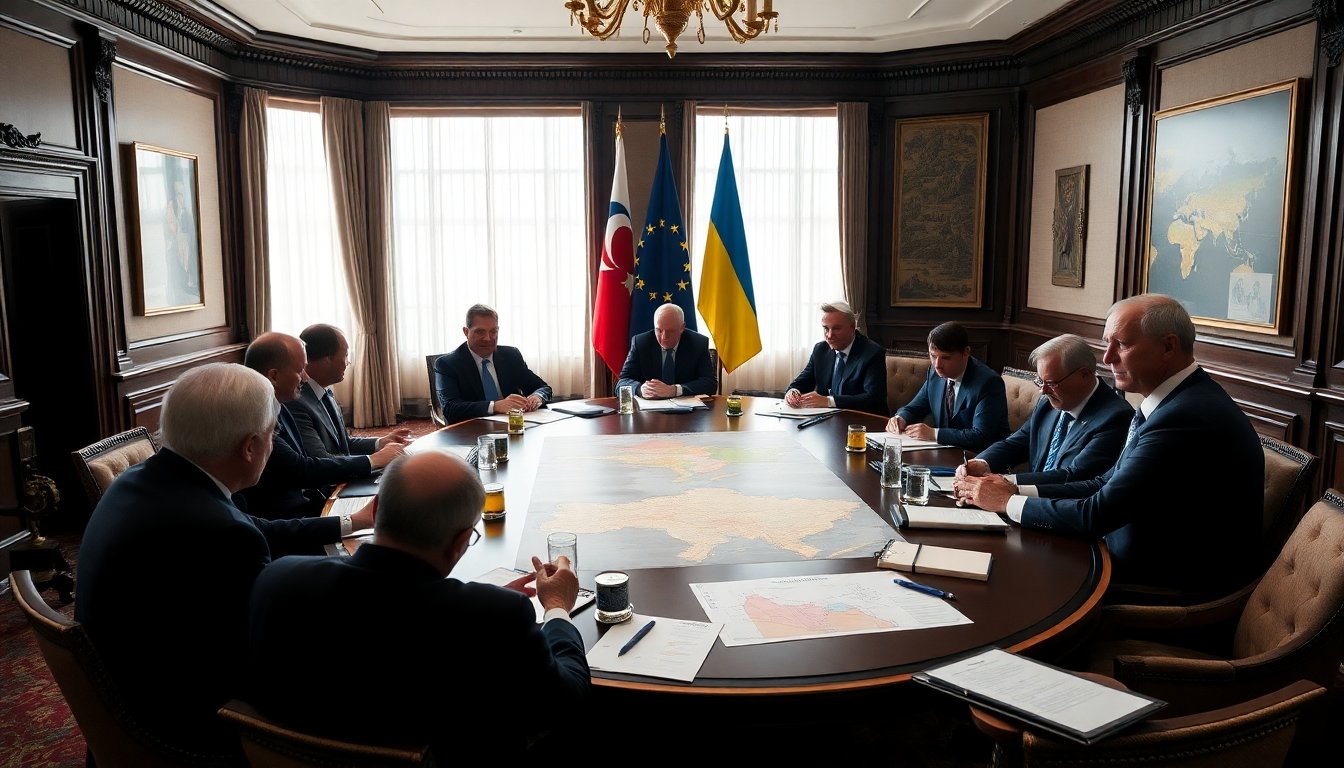Table of Contents
US, Ukraine, and European nations discuss peace plan in Geneva
Officials from the United States, Ukraine, and various European nations recently convened in Geneva to discuss and refine a proposed peace plan aimed at addressing the ongoing conflict in the region. The discussions focused on fostering collaboration to enhance stability and ensure a comprehensive approach to the situation.
However, these dialogues were significantly influenced by comments from former President Donald Trump. He publicly expressed his dissatisfaction with the roles assigned to Ukraine and Europe in the peace process, which added a layer of complexity to the negotiations.
Trump’s criticisms and their implications
In recent remarks, Trump voiced significant concerns regarding Ukraine‘s approach to negotiations, questioning whether their strategy serves the best interests of the United States. He contended that Ukraine has not adequately addressed its responsibilities in the ongoing conflict, prompting reactions from diplomatic circles. Trump’s critique also targets Europe, as he believes there is insufficient accountability for their role in peace efforts.
Concerns over accountability
Former President Donald Trump has raised questions about Ukraine’s commitment to a peaceful resolution, igniting a debate on the accountability of nations involved in the conflict. His comments reflect a growing sentiment among some U.S. officials who believe that allied nations need to take a more active role in fostering peace. This perspective resonates with a segment of the American public that is increasingly wary of U.S. involvement in international conflicts.
Impact on U.S. peace initiatives
As discussions in Geneva progressed, Trump’s remarks could significantly influence the trajectory of U.S. peace initiatives. His viewpoint indicates a potential shift in the U.S. approach, with a reevaluation of support for Ukraine. Such changes could impact funding and military assistance, as policymakers assess the effectiveness of their commitments in light of Trump’s statements.
Reassessing alliances
The urgency to reassess alliances is becoming more apparent. Former President Trump’s outspoken criticisms may lead U.S. officials to rethink their partnerships with European nations and Ukraine. This shift could encourage a more transactional approach to diplomacy. U.S. foreign policy might begin to prioritize national interests over unconditional support for allies, potentially reshaping the landscape of international relations amid ongoing conflicts.
Shifting dynamics in U.S. peace negotiations
The recent discussions in Geneva mark a significant moment for the U.S. peace plan, highlighting the need to address the interests of various stakeholders. Former President Trump’s comments reflect a larger conversation about the future role of the U.S. in global conflicts. As these negotiations unfold, his views may influence some lawmakers, prompting a reevaluation of U.S. alliances and commitments in international peacekeeping efforts.
The dialogue surrounding the U.S. peace plan is expected to adapt, shaped by both domestic and international factors. While the future remains unpredictable, the impact of Trump’s criticisms is likely to influence the trajectory of U.S.-Ukraine-European relations.


